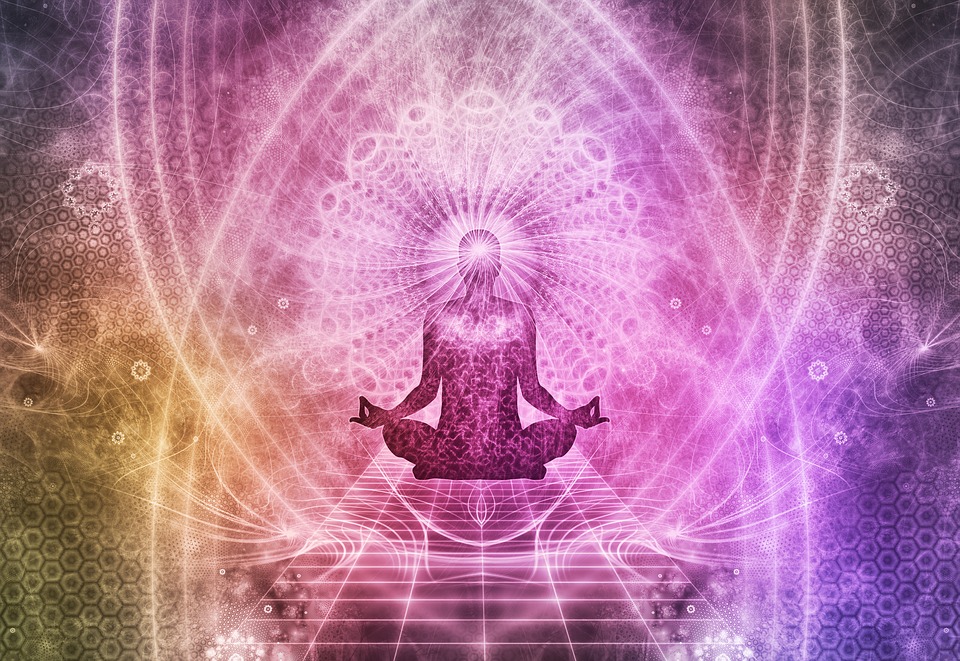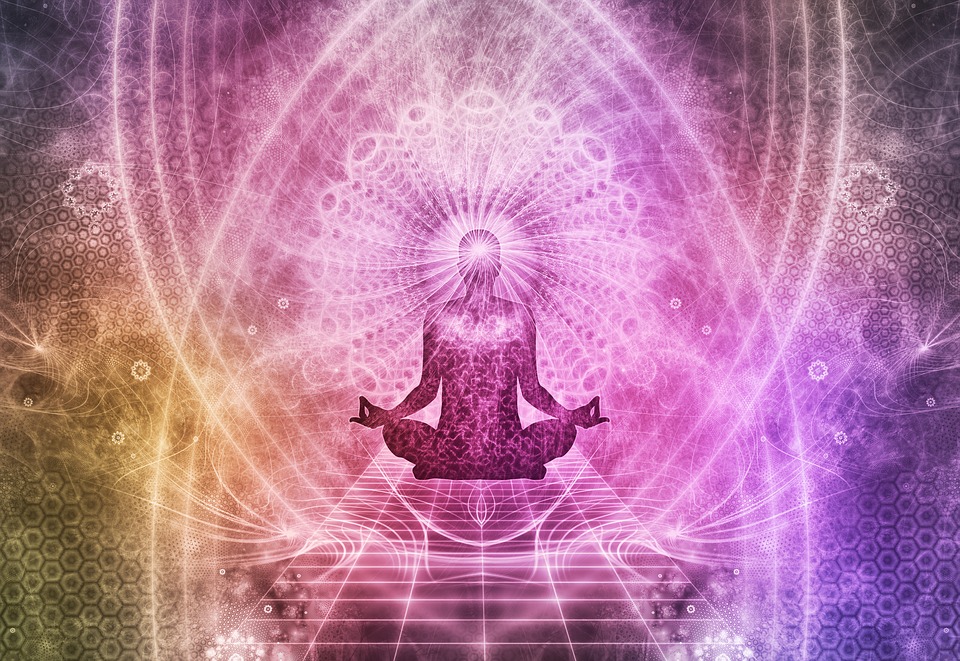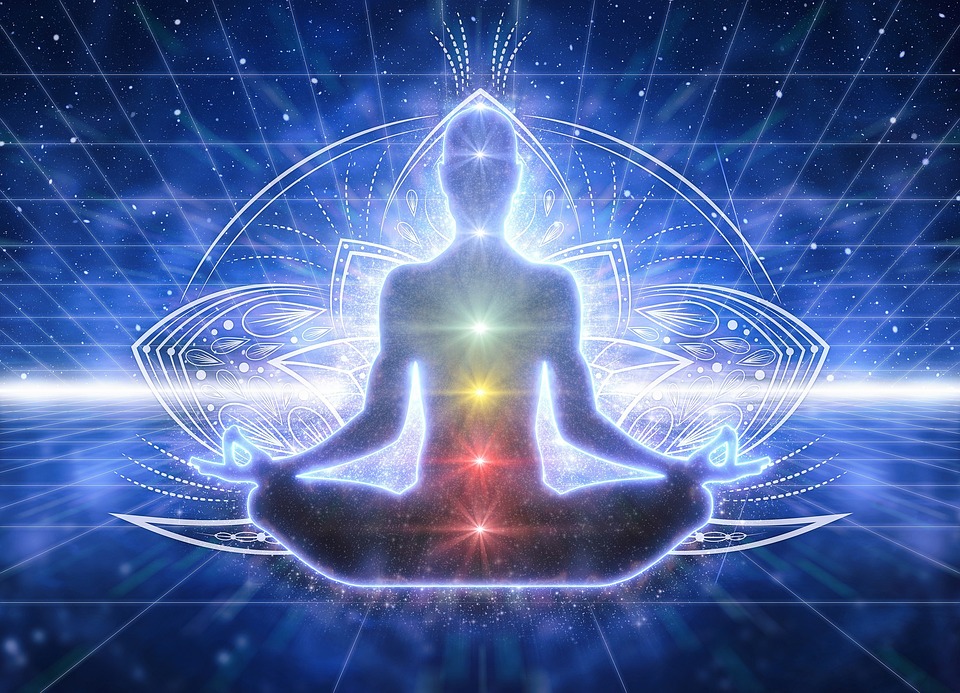
It’s no secret that the world has been under a lot of stress for the past year, which is far beyond what is typical. As anxiety increases about new COVID-19 variants, the current period of uncertainty can feel increasingly difficult to manage. Ayurvedic experts suggest focusing on your chakras to help manage stress and get rid of negative energy, rather than on DIY face masks, naps, and CBD. There are four key ways that sleep can impact your mental health. Keep reading to learn what they are, how they play a role in your physical and emotional well-being, and which one has the biggest impact on maintaining balance in times of turbulence.
What are chakras, and how do they play into emotional and physical feelings?
There are certain points along the body where energy flows more strongly, and these are known as chakras. The chakras are said to run from the crown chakra at the top of the head, passing through the third-eye chakra in the forehead, down the length of the spine, through the throat, heart, solar plexus, and sacral chakras, and ending in the root chakra at your feet.
Ayurvedic expert and Reiki practitioner Parita Shah told Well+Good that you can picture the chakras as spinning wheels. According to Shah, if a chakra is spinning too fast, that would be considered overactive. If it’s spinning too slowly, it’s under-active. The energy that we emit is determined by our thoughts, feelings, memories, and experiences.
If your chakra is blocked, it means there is an imbalance. Emily Schmookler, a senior yoga trainer at CorePower Yoga, says this can be referred to as a blocked chakra. The individual says that a blockage can cause the area to feel tight or cramped, and can even lead to a related physical ailment. An emotional imbalance can make a person feel either closed-off or overly expressive in negative ways. “When our chakras are balanced, we feel more relaxed, communication is clearer, and we don’t feel restricted by boundaries,” she says.
To put it more simply? “Like a New York City intersection, chakras can become congested and in need of repair.” According to Kino MacGregor, chakras can be thought of as intersections where a lot of traffic crosses. Just like how an intersection in New York City can become congested and in need of repair, chakras can also become congested and need to be fixed. A traffic jam can feel like you’re stuck in an emotional or physical rut.
What’s special about the heart chakra?
The heart chakra is the most importantly emotional energy center. It is located at the center of the chest and between the shoulder blades in the back.
“The heart chakra is considered the energetic bridge between the physical and spiritual realms,” says Ambi Kavanagh, Reiki practitioner and author of Chakras & Self-Care. “The Sanskrit name for it is Anahata, which means ‘unstruck, unhurt, unbeaten.’”
Generally, the heart chakra controls how we love, serve, give and receive, Schmookler says. MacGregor stresses the importance of compassion, empathy, and kindness in individuals’ lives. He argues that these qualities are essential for processing energy and dealing with everyday thoughts and behaviors. It’s essential to have a balanced heart chakra in order to have positive human connections, which is especially important during times of collective trauma.
This chakra is especially important to unblock (or keep unblocked) during any stressful time since it sits at the midline of the other six chakras in the body and holds sway over the balance and enlightenment of the system as a whole.
How might the heart chakra become blocked?
An imbalance in the heart chakra can be caused by too much or too little activity, says Kavanagh. She suggests that an underactive thyroid may cause someone to feel emotionally numb due to a lack of energy flow. She cites unprocessed emotional trauma in childhood, such as a lack of love or the experience of heartbreak, as potential causes. If your brain is overactive, you may have too much energy and become too dependent on others, she says. If a person’s heart chakra is too active, they may have trouble accepting love from others because they don’t love themselves enough. This can cause them to try too hard to please others, to have weak personal boundaries, or to become too reliant on others.
The first step in opening a blocked heart chakra is to confront past emotional traumas and to feel all the feelings that come up as a result. But, of course, that’s far easier said than done. Kavanagh says that journaling, meditation, spending time with animals or young children, and volunteering are all helpful starting points for reconnecting to emotions of empathy.
Kavanagh suggests that you can balance your heart chakra by diffusing essential oils in your home and practicing stretches that direct your mental and physical attention to this energy center.
17 Heart chakra healing practices
If your heart chakra is open and balanced, you will feel both open and receptive. You will no longer feel isolated, afraid, and bitter, but instead, you’ll feel courageous enough to open your heart to others. You can only learn to love others when you love yourself first. If you have a strong relationship with yourself, it will be defined by how much you love and accept yourself. Because of this, your heart will be more inclined to feel safe around others, even when they might try to hurt you.
You will not only develop self-love but also begin to break free of old, harmful patterns of behavior that have defined your relationships in the past. If you stop thinking of yourself as a victim or martyr, you will start to trust yourself more. The more you trust and love yourself, the more compassionate and understanding you will be toward others. When you do the meditation, you will feel loving, open, receptive, and forgiving toward yourself and others.
Here are the best heart chakra healing practices out there which will help you balance this energy center:
1. Go forest bathing
Best suited to: deficient and excessive blockages
Nature can help to open your heart chakra, which is green. Shinrin Yoku, commonly known as “forest bathing”, is a Japanese practice with many scientifically proven benefits. If you don’t live near a forest, don’t worry. Just head to your nearest park, forest, shrub land, or other places full of vegetation. If you don’t have access to nature where you live, try to bring some nature into your home with a pot plant or indoor shrubs. This will help to heal your heart chakra.
2. Do a loving-kindness meditation
Best suited to: deficient and excessive blockages
A balanced heart is beautiful. It abolishes the idea that we are separate from one another and instead shares loving kindness with others. If you are feeling as though your heart chakra is blocked, the loving-kindness meditation may help to clear it. Find a quiet spot to sit down in and focus on your breath. Allow your chest area to relax as you direct loving energy toward yourself. Afterward, direct loving energy towards four different types of people, including a loved one, a person close to you, a neutral person (like an acquaintance), and an enemy or hostile person. Try to see loving energy emanating from your heart, or say a mantra such as “I radiate love to you” to help with this meditation.
3. Establish clear personal boundaries
Best suited to: excessive blockages
Look at the areas of your life where you are letting others cross your boundaries. What are some of the reasons you might say “yes” when you really want to say “no”? Which people in your life demand more from you than you’re willing to give? What areas of your life make you feel anxious and ungrounded? It’s important to be assertive and let people know where your boundaries are. Practice assertiveness and take care of yourself.
4. Use the following herbs
Best suited to: deficient and excessive blockages
Try using herbs like rose, astragalus, holy basil, hawthorn, nettle, hops, and angelica to open and clear your heart chakra.
Herbal teas are a great way to consume herbs. I recommend Buddha Teas’ Heart Chakra Tea for the heart chakra. It is soothing and 100% organic. This tea contains rose quartz essence.
5. Practice empathy by asking “What if?”
Best suited to: deficient and excessive blockages
We can be quick to judge others without really knowing them. Often these conclusions are judgmental, harsh, and unloving. The next time you find yourself feeling angry towards another person, ask the question “What if?” For example, if someone is rude to you, ask, “What if that person just lost their job?” Or if you struggle to get along with someone else, ask, “What if that person’s childhood traumatized them so much that they can’t relate to others?” Remember that there is always a story behind the behavior of others.
6. Hug more
Best suited to: deficient and excessive blockages
We rely on physical contact with others to remain healthy. Oxytocin is a chemical that calms down the entire body and is a natural antidepressant. Try to hug your loved ones more. If you’re feeling lonely, try giving yourself a hug as an act of self-love.
7. Show self-love by giving yourself permission to feel
Best suited to: deficient and excessive blockages
The avoidance of emotions is one of the biggest forms of violence we inflict on ourselves without realizing it. Our emotions should not be suppressed or hidden away – they are part of what makes us human, and we should accept them. You should give yourself permission to feel all emotions, even the negative ones that you usually try to avoid. Fix your attention on your breath and let the feelings go past you.
8. Allow yourself to receive love
Best suited to: deficient blockages
We often ignore or downplay expressions of love from others because we don’t think we’re worthy or we’re afraid. Try accepting affection or compliments instead of denying them. This simple change in behavior can make you feel more open-hearted.
9. Meditate with the following crystals
Best suited to: deficient and excessive blockages
Crystals can help you balance your heart energy by serving as energetic totems. There are a number of things you can do to ease stress, including meditating and carrying crystals such as jade, malachite, rose quartz, emerald, rhodonite, prehnite, ruby, green fluorite, and chrysocolla.
10. Be thankful and show gratitude
Best suited to: deficient and excessive blockages
The best way to heal your heart chakra is to simply be grateful for all the good things in your life. Think about all the things in your life that make you happy. Take a moment to silently thank each person who has helped you, or say a prayer of gratitude if that feels right.
11. Do shadow work
Best suited to: deficient and excessive blockages
A closed heart chakra can often indicate that someone is holding onto a lot of negativity in their subconscious mind. The “shadow self” refers to the darker aspects of your personality that you tend to hide from others. This may include negative traits, unpleasant thoughts, and uncomfortable feelings. If you allow yourself to access the emotions and memories you have hidden away, your heart will begin to heal.
12. Cleanse the heart chakra with essential oils
Best suited to: deficient and excessive blockages
Some essential oils that can be used to promote relaxation are marjoram, rose, ylang-ylang, lavender, neroli, and angelica. The oils can be diffused using an oil diffuser, applied to the wrist in a diluted form, or worn in a diffusing pendant.
13. Do a forgiveness ritual
Best suited to: deficient blockages
Forgiveness starts with you first. In what ways have you mistreated yourself? Write a loving letter to yourself asking for forgiveness, and either burn it or keep it someplace safe. If you’re resentful towards another person, try a self-designed ritual that includes one of the elements (earth, fire, water, wind). ” This is an example of how you might forgive your mother. Try lighting a candle and saying a prayer such as, “Dear Life/Spirit, may my heart release resentment towards my mother.” Amen.” Then blow out the candle.
14. Eat more of these foods
Best suited to: deficient and excessive blockages
The following fruit and vegetables are associated with the heart chakra: kiwi fruit, spinach, kale, green apples, pears, chard, lettuce, broccoli, peas, avocados, cabbage, peppers, zucchini, grapes, and celery. Try incorporating more of these into your diet to balance your heart chakra.
15. Let go of the Martyr role
Best suited to: excessive blockages
A martyr is a person who willingly suffers or is killed for a cause. This role is only a problem because it is fuelled by low self-esteem, the desire for praise and adoration, and the avoidance of self-responsibility. Those who are willing to make sacrifices for others will often go to great lengths to take care of those around them, even if it means manipulating them.
If you tend to take on the role of Martyr in your relationship, see if you can fill another, healthier role such as a friend, confidant, peacemaker, or helper.
16. Clear blocks with yoga
Best suited to: deficient and excessive blockages
To improve your physical and emotional well-being, do some yoga poses that involve stretching your body and balancing your heart chakra energies. Examples of these poses include cobra, cat, forward bend, eagle, camel, and fish poses.
17. Learn how to breathe deeply
Best suited to: deficient and excessive blockages
Since the heart chakra is associated with the element of air, it is important to learn how to breathe deeply. There are various pranayama techniques you can try, such as alternate nostril breathing, or you can simply slow your breathing down organically. It is not normal to take shallow chest breaths. The deeper we breathe, the more oxygen we provide to our cells. The better our metabolism functions when we have more oxygen in our bodies, and the more relaxed we feel. If you have heart chakra issues such as social anxiety, deep breathing can be a helpful tool.














